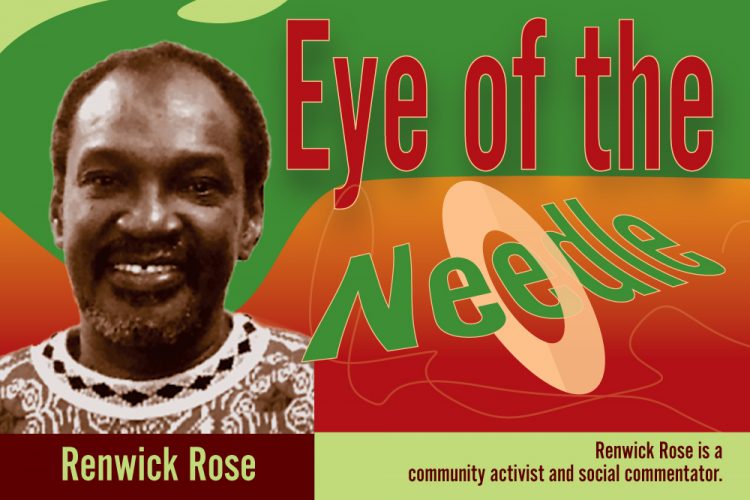Carnival ’22: Observations

Every year after Carnival, whether it is the Vincy variety, the Rio “strip mas” on which much of our modern Carnival is patterned, or Trinidad’s pre-Lenten mas, I hear the haunting tones of Kitchener’s classic, “The Carnival is over”. It used to be like poison in my ears, but not so today.
There are other factors, besides aging, which cause Carnival lovers like me, to now almost feel relieved that the Festival has come to an end. But those are negative factors which people of my generation should not allow to cloud our vision, hard as it is.
First and foremost though, congratulations to the Carnival Development Corporation (CDC), its multiple organs, the local Health authorities, and above all, the people of St Vincent and the Grenadines, for piloting a sceptical population through an ongoing crisis. It is true that many of us were extremely worried about this Carnival experiment with Covid still present, but we made it!
Congratulations as well to the various winners in the multiple competitions from Junior right up to the “Heavyweights”. It must have been strange for those, like the mas bands, to engage without the incentive of competition to which they have been accustomed but, they made it.
The positives are many – the quality of the kaiso, at all levels, but most encouragingly the youth and women; the unflagging enthusiasm of our people; the demonstrated resilience especially by veterans such as ‘Melbourne’, to be finally getting the message across about sustainability and survivability and how we can use waste to our own developmental objectives. Do we remember our negatives about him and Hugh Ragguette when it was “we” who did not understand the message?
Veteran Sulle has provided us with a platform for going forward, with his epic, “Carnival Alphabet” giving us a base for a much longer-term appreciation of the multiple art forms and their principal contributors. Immediately, beyond the names of who else should be in the alphabet, is the challenge arising from Sulle’s proposition.
First, as an ongoing project, there is the implication for the CDC and Culture as a whole? Is it the CDC with its narrowly-defined mandate that would be entrusted with Sulle’s project? Or do we, as some of our neighbours have done, either absorb the CDC into a wider cultural mission or expand its own mandate? We must discuss such issues intelligently.
In fact, even outside the concept raised by Sulle’s suggested “project” it may well be appropriate to review the mandate of the CDC itself. It is necessary to do this periodically to ensure that the overall controlling body keeps apace with changes in the very nature of the Festival itself.
The personnel in charge of the CDC have, in spite of shortcomings, been doing a good job given the constraints. The CDC has a lot of historical baggage inherited from its early days when very often a heavy-handed approach was adopted to resolve difficult situations. This frequently caused conflict, especially among calypsonians and their lyrics.
While the situation has improved there is still some overhang. It is one thing to try and avoid libellous or slanderous assertions, quite another to try and exercise censorship on the grounds of political preference. The CDC is not beholden to any political organization, politician or political philosophy and, libel aside, all lyrics of calypsonians should be treated equally.
Incidentally, this old dictatorial attitude of some persons in authority is having a negative effect in stirring rebellion. It often causes those in objection to resort to words and actions that may be both unnecessary and undesirable, engendering support from sections of the public. A consequence of this is the encouragement given to some calypsonians causing them to neglect creativity in the presentation of their ideas. It is a pity that this is affecting some veteran calypsonians.
Another relic of the past in which both calypsonians and fans are seemingly trapped is the outdated idea that the calypso competition can only be valid if it is of a two-song nature. This idea derived from the times when it was considered that a calypsonian should have a “party song” along with one of a more serious nature. Those days are long gone and today, there are all sorts of competitive song competitions globally, based on one song. Why should calypso be any different? What would have happened this year if calypsonians had a second round? J’ouvert might have ended before the Calypso Monarch competition!
We should not need two songs to judge the outcome of a competition. In fact in separating the topics, we inadvertently attach more weight to one category of composition than others. Ebony’s humorous, yet serious content should carry as much weight as political commentary or indeed as Carnival songs, they are all part of our collective experience.
In summing up our Carnival, we should take all these into consideration. Carnival belongs to us all, not to government, or politics, or soca only. This is the underlying basis of these reflections.
Renwick Rose is a community activist and social commentator.











